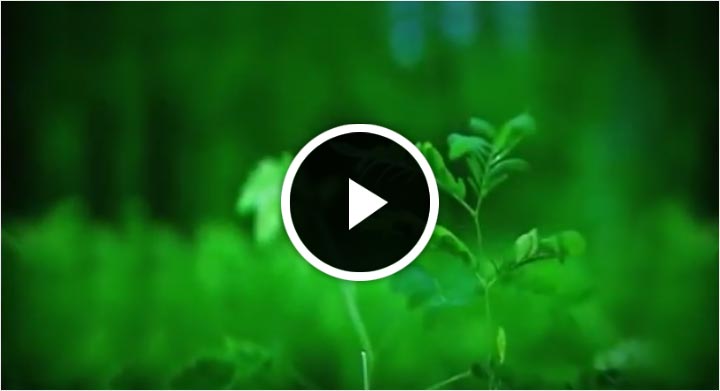“Businesses should invest in technology infrastructure and employees to enhance their emotional intelligence and adaptability”
September 21, 2021
Featured in CFO India
 In an interview with CFO India, Lalit Kasliwal, Chief Financial Officer & Company Secretary, Tata International, talks about the impact of the pandemic on the trading and distribution business, the outlook for the sector in India and the role of a CFO in a crisis. He lists investment in automation, a robust technological infrastructure, reduced exposure and risk management, supply chain resilience, revamped customer supplier relationship with reformed governance, cost optimisation and emotional and counselling support to employees as the key focus areas in the current uncertain environment.
In an interview with CFO India, Lalit Kasliwal, Chief Financial Officer & Company Secretary, Tata International, talks about the impact of the pandemic on the trading and distribution business, the outlook for the sector in India and the role of a CFO in a crisis. He lists investment in automation, a robust technological infrastructure, reduced exposure and risk management, supply chain resilience, revamped customer supplier relationship with reformed governance, cost optimisation and emotional and counselling support to employees as the key focus areas in the current uncertain environment.
Q: How has the pandemic impacted the trading and distribution business?
Lalit Kasliwal: Trading and distribution are mainly characterised by procurement of goods, and sales across different borders. The pandemic has disrupted the normal movement of goods, services and people and the impact on business and financial performance of trading and distribution business in our country has been unprecedented. There have been concerns, especially around shipping and procurement, limited availability of labour at plants and ports, decline in sales and lower honouring of sales contracts, which have resulted in the piling up of bad working capital, lower revenues, and an increase in losses. However, the government has put in place various initiatives to overcome these challenges and support the industry, the positive impact of which is visible
Q: How did you work around the sudden and unprecedented change in the business environment that the pandemic brought?
Lalit Kasliwal: The pandemic has taught many lessons to everyone on both the industry and personal fronts. I had my own fair share of learnings. It reiterated how today the world is characterised by Volatility, Uncertainty, Complexity and Ambiguity, to which the only responses is agility and adaptability. I endeavour to constantly ingrain this thought process in my approach to both professional and personal life. I have tried to be agile in embracing multiple changes with respect to working style, technology, hygiene and socio-cultural relationships that have accompanied this pandemic, and been adaptive towards new ways of working and collaboration. In fact, the world today has changed a lot. A multitude of activities including IPOs or exports are now being conducted in a digital environment, while maintaining social distancing and following other Covid appropriate behaviour. This could not have been envisaged earlier.
Q: How do you think trader and distributor behaviour has been impacted? What are the key focus areas in the current uncertain economic environment?
Lalit Kasliwal: Faced with gloomy situations of lowered volumes and restricted mobility, businesses were prompted to shift and adapt to new methodologies of functioning. In the current uncertain environment, some of the key focus areas will be Investment in Automation and Robust Technological Infrastructure; Reduced Exposure and Risk Management; Supply Chain Resilience; Revamped Customer Supplier Relationship with Reformed Governance; Cost Optimisation; and Emotional and Counselling Support to the employees to adapt to the new work from home style of working and collaboration to deal with the uncertainties and casualties surrounding the pandemic.
Q: What is your outlook for the trading-distribution sector in India? How does Tata International plan to expand in a new and growing market segment?
Lalit Kasliwal: Though the pandemic restricted mobility across borders, it has brought the world together in a collective combat against the Covid-19 virus. The situation has slowly started improving and business performance is improving gradually. With the ongoing pace of vaccination drive, situation and conditions are expected to be more conducive to conduct business with Covid appropriate behaviour. If things turn normal, the pace of trading and distribution sector will be restored at better-than-current or earlier levels with the prevalence of new opportunities and avenues. Our businesses are constantly evaluating opportunities in different geographies, with an eye on a balanced risk approach. We have been a forerunner in Africa and this focus continues. The continent is poised for significant progression the coming years.
Q: We have been hearing several business leaders talk about COVID-19 triggering a ‘big reset’, which is mostly about an increased focus on agility, adaptability, and sustainability. How should businesses like yours gear up for this?
Lalit Kasliwal: There is always a bit of uncertainty associated with the complex world around us and that has now further been fuelled by the Covid-19 black swan event. Organisations across the globe have witnessed disruption, shutdowns and a paradigm shift towards work from home. In short, the world is not the same anymore. The shift in working styles and business models are here to stay, and rigid conventional methods while operating the business must change. Businesses should invest adequately in technology infrastructure and employees to enhance their emotional intelligence and adaptability by creating conducive working and employment conditions and providing regular counselling and mentoring sessions. There should be regular brainstorming at an organisation level to come up with innovative style of conducting operations. Consistent focus on these lines, considering the increased uncertainty will prepare businesses to face any unforeseen event in the future gracefully, contrary to the onset of the pandemic, when the world was caught off-guard.
Q: Lockdowns and other COVID-19 related restrictions have led many industries to rethink existing business models and change the way clients, vendors, and their supply chains co-exist, bringing collaboration into sharp focus. What has been your experience and how do you see this aspect evolving going forward?
Lalit Kasliwal: That there has been a paradigm shift and transformation in business models, relationships with client and vendors and the working of supply chains across the industries and this change is here to stay is undeniable. The negative impact of the pandemic on the financial performance of suppliers and customers has resulted in increased cases of dishonouring of sales and supply contracts, which in turn has led to revisiting the advance policy for suppliers and credit terms with customers. Thus, in a similar way, organisations have started focussing on optimising their exposure and are evolving to put in place, robust risk management policies and mechanism. Companies have started preserving cash flows by shifting towards high frequency, low volume and on demand trading, distribution, and manufacturing strategies. Easy and quick movement of goods can no longer be taken for granted and the pandemic has highlighted the importance of supply chain resilience through technology enabled logistics partnerships.
Q: During the pandemic, what has changed in how Tata International works? Do you see any changes that are here to stay?
Lalit Kasliwal: During the pandemic, just like other organisations, Tata International also faced its share of business disruption and dragged financial performance. With social distancing being the new mandate, people collaborated through remote working and virtual modes to ensure consistency in their efforts towards increased business performance against all odds and explored new methods of sustainable operations. There has been an increased thrust on robust and secured IT infrastructure and automation to ensure seamless business operations among employees sitting across the country and the globe. Thus, long story short, people have developed the required agility and adaptability to keep the show going, and these changes in the human capital along with upgraded IT infrastructure and technological acumen, I must say, are here to say.
Q: In what ways has your role as a CFO changed since the Covid-19 crisis changed the work and business landscapes?
Lalit Kasliwal: Covid-19 crisis hit the top line of the majority of businesses in the global economic scenario. With an objective to protect the bottom line, keeping in mind the restricted mobility of goods, people, and services, maintaining revenues became more difficult and therefore identifying cost optimisation and cheaper financing options was imperative. It became important to collaborate with heads of different business segments on a more regular and frequent basis to understand the multitude of their concerns deeply and help devise right business and action plans, with a robust mechanism to monitor the progress and intended results. Increased communication in both directions, whether bottom up or top down, has been instrumental to enhance the sense and scale of collaboration in these tough times to promote the sense of belonging and ownership.
Q: What are the traits a finance leader needs during times of crises such as the COVID-19 pandemic?
Lalit Kasliwal: One of the important traits a finance leader needs during the times of crises such as Covid-19 pandemic is to maintain one’s composure, when patience is the first thing that is stress tested. Every other day you are given updates on disrupted business performance which impacts different aspects of your financial planning and, therefore, statements negatively, such as piling inventory and overdues, increasing strapped cash and losses, further reducing the ability to pay off debts. At this point, it becomes important to take things in one’s stride and stay calm to restore other behavioural traits and technical skills and identify the right course of action for optimising the affected business.



